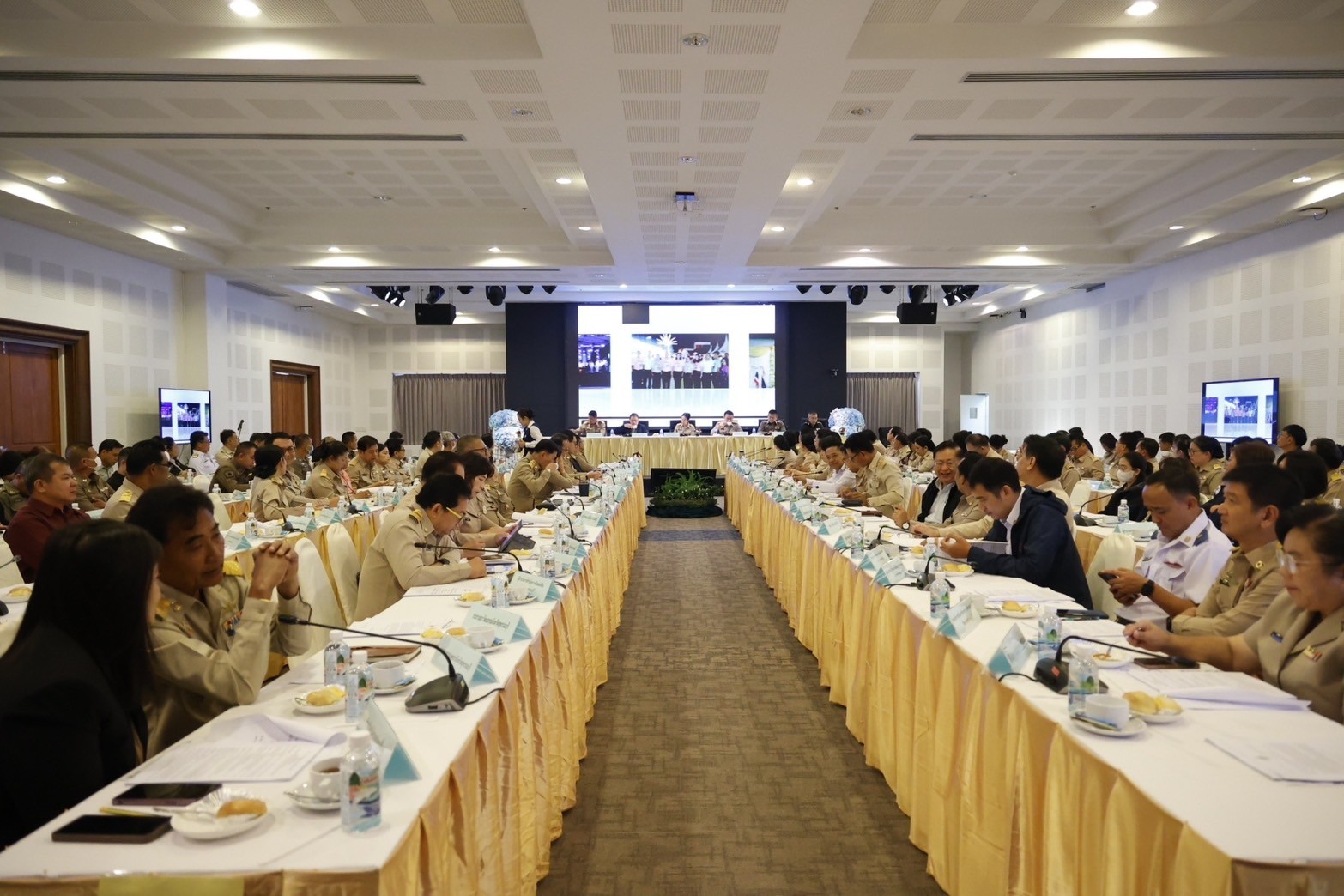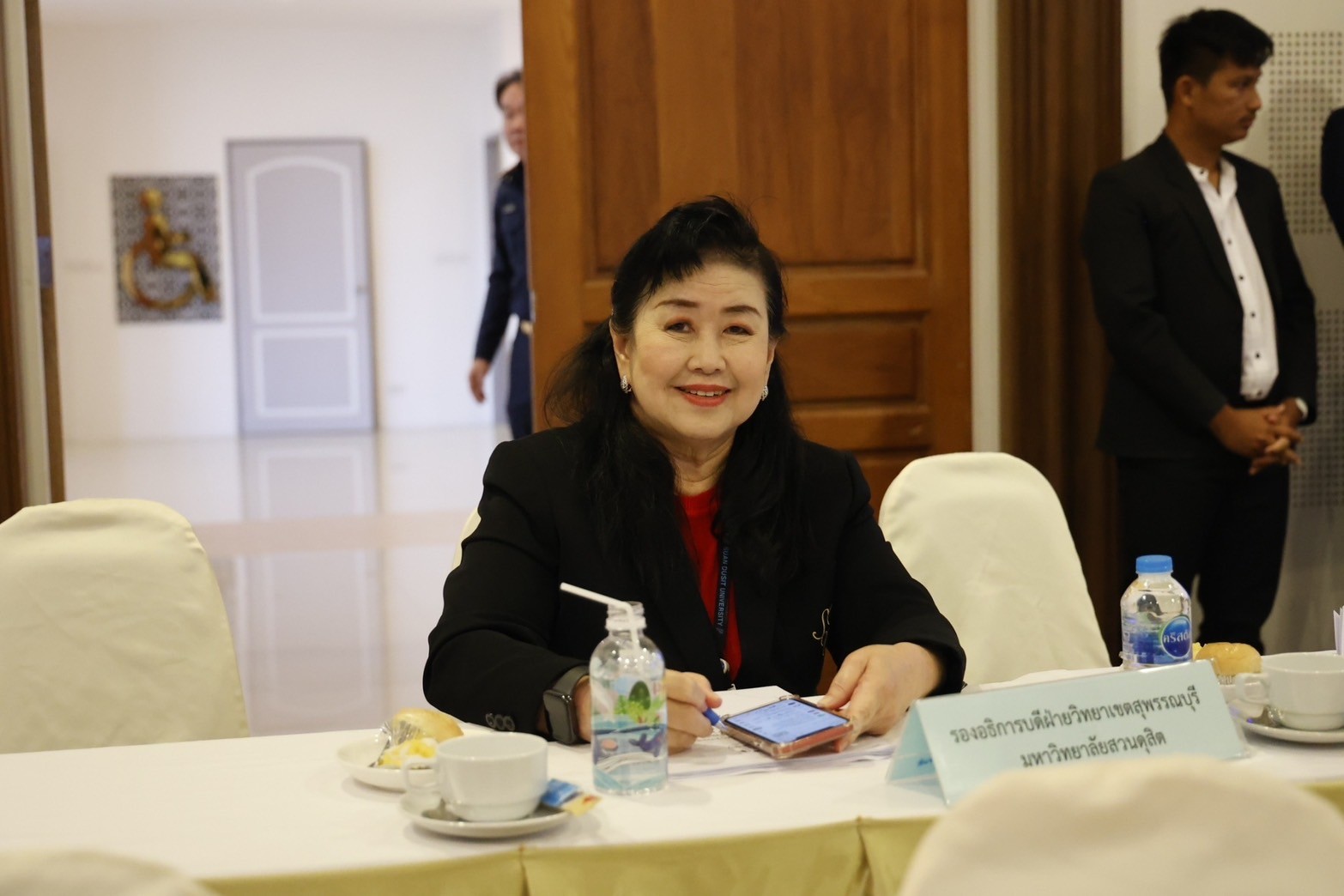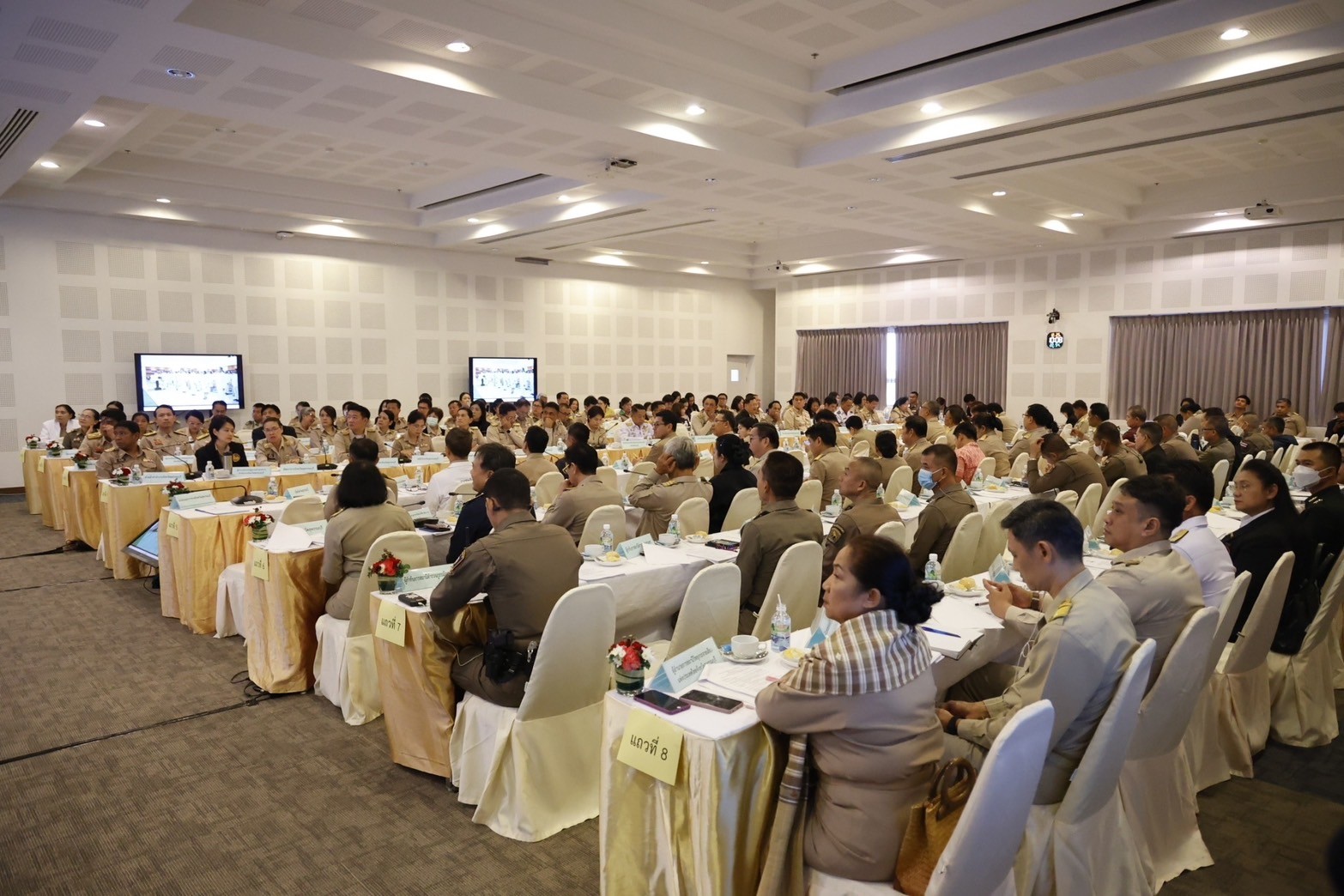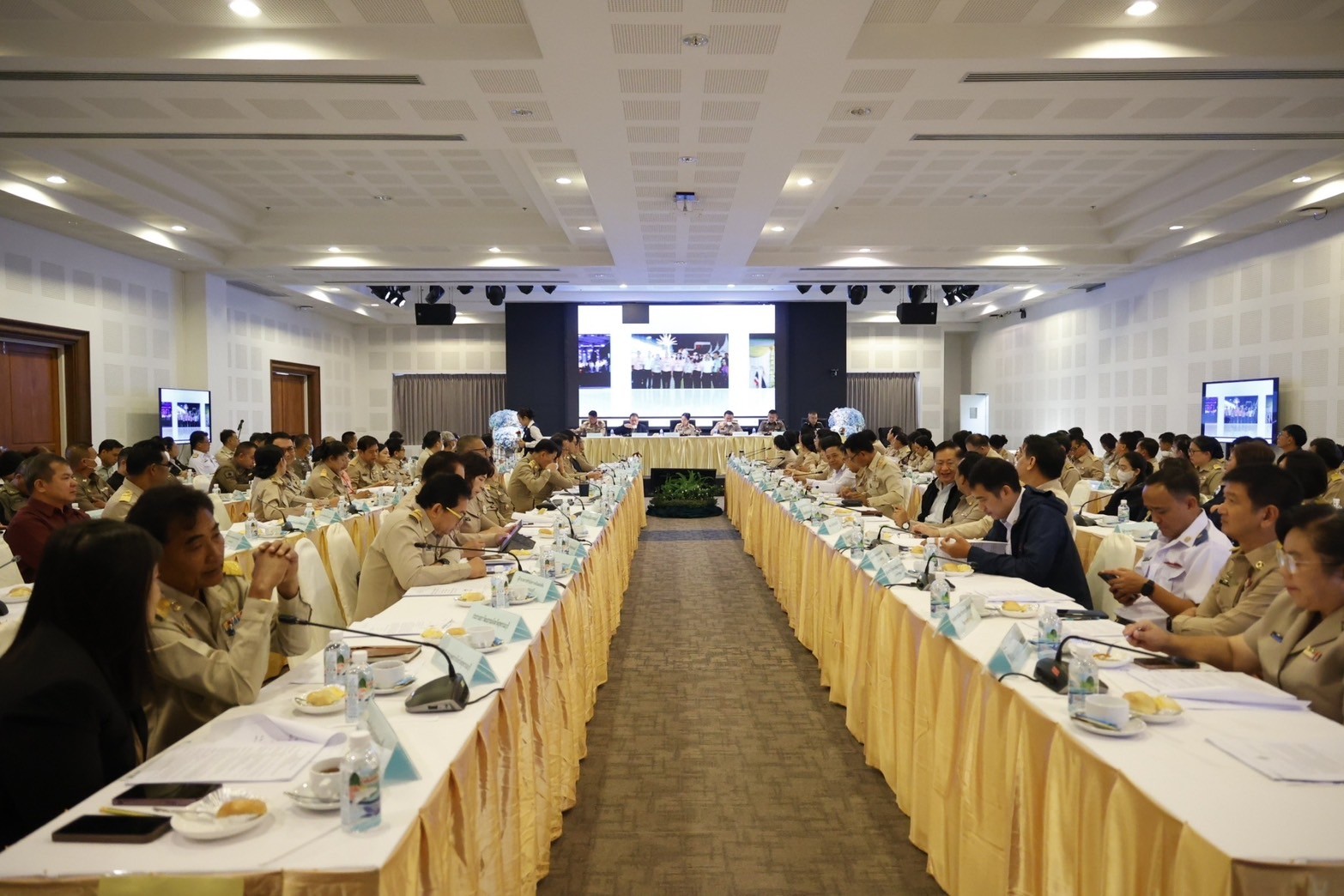Suan Dusit University (SDU) upholds its mission as a University for Sustainable Development, emphasising responsible environmental governance, natural resource conservation, and community collaboration in protecting shared aquatic ecosystems. The university recognises that sustainable aquatic resource management requires cooperation between academia, government agencies, and local communities — especially in regions where SDU campuses are located near key water resources and local ecosystems.

In 2024, Suan Dusit University, Suphanburi Campus, participated in the Suphanburi Provincial Executive Meeting No. 11/2567, held on 25 December 2024 at Phuang Ngern Conference Hall, Chancharoen Building. The meeting was chaired by the Deputy Governor of Suphanburi and attended by provincial officials, government agencies, and academic representatives, including the Vice President for Suphanburi Campus, who joined discussions on environmental and natural resource management within the province.
A key agenda of the meeting was the Report on the Enforcement of the Royal Fisheries Ordinance B.E. 2568 (2025)under the Special Task Force for the Control, Prevention, and Suppression of Illegal, Unreported, and Unregulated (IUU) Fishing in Suphanburi Province.

Strengthening Collaboration between Academia, Government, and Local Communities
This meeting served as a collaborative platform between government agencies, local communities, and Suan Dusit University, which functioned as an academic hub for policy dialogue and knowledge exchange on environmental and aquatic resource management. SDU’s participation demonstrated its active role not only as an educational institution but also as a regional academic partner supporting policy-level collaboration toward sustainable development.

The key discussion on IUU Fishing Control represented a collective effort to safeguard local freshwater ecosystems — including rivers, canals, and public waterways — from destructive and illegal fishing practices that threaten aquatic biodiversity. As the host and academic partner, SDU contributed to the dissemination of environmental knowledge and public communication that promote Good Aquatic Stewardship Practices, aligning academic engagement with community-based resource protection.
Watershed Management Strategy for the Tha Chin River Basin
Suphanburi Province lies within the Tha Chin River Basin, one of Thailand’s most important freshwater ecosystems, characterised by a rich diversity of aquatic species such as pla tapian (barb fish), pla nin (tilapia), and pla chon(snakehead fish). Recognising the ecological and socio-economic importance of this basin, SDU collaborated with the Suphanburi Provincial Fisheries Office and environmental authorities to support the province’s Watershed Management Strategy, designed to preserve the area’s biodiversity and maintain sustainable fisheries.

The collaborative strategy focused on controlling activities that could damage aquatic ecosystems — including overfishing, the use of prohibited gear, wastewater discharge, and habitat degradation. The Special Task Force’s operation, which resulted in the removal of seven illegal fishing devices such as lob pab dai (collapsible fish traps) and phong pangnets, exemplified practical actions that align with ecosystem restoration and biodiversity protection objectives.
These activities form part of a location-specific watershed management approach, ensuring that resource management practices are tailored to the ecological characteristics of the Tha Chin River Basin.
Moreover, SDU played a crucial role as a Knowledge-based Watershed Governance Center, supporting data collection, environmental education, and public outreach. The university provided scientific and technical knowledge to raise awareness about responsible water use, sustainable fisheries management, and pollution prevention, thereby enhancing the community’s capacity to engage in sustainable watershed management.
Outcomes and Impacts of the Collaboration
The integrated collaboration among SDU, government agencies, and local communities has generated significant outcomes across environmental, social, and institutional dimensions.
From an environmental perspective, the joint operations to monitor and control illegal fishing have reduced pressure on natural freshwater habitats, restored ecological balance, and helped preserve aquatic biodiversity. The reduction of destructive fishing practices directly supports long-term ecosystem resilience and the sustainable management of aquatic resources within the Tha Chin River Basin.
From a social perspective, this collaboration has raised public awareness about responsible water use and fostered a sense of collective responsibility among local residents toward conserving shared water resources. Communities have become more engaged in monitoring aquatic activities, preventing environmental degradation, and maintaining the health of local ecosystems. The partnership has also empowered local stakeholders by integrating scientific knowledge from the university with traditional community wisdom — establishing a sustainable model for shared aquatic ecosystem governance.
At the institutional level, Suan Dusit University has been recognised as a key academic partner and knowledge facilitator supporting the province’s environmental and fisheries governance. The university’s contribution has strengthened local capacity for data-driven watershed management and aligned regional policies with the principles of the Sustainable Development Goals (SDGs). Through its role as a bridge between science and policy, SDU has fostered a collaborative aquatic stewardship culture that integrates research, education, and community engagement into practical, locally driven action.
Overall, the outcomes of this partnership demonstrate how SDU’s involvement extends beyond policy dialogue to tangible impacts on freshwater conservation, illegal fishing control, and biodiversity protection. The initiative represents an effective model of integrated watershed management, where academia, government, and communities collaborate to maintain shared aquatic ecosystems in balance with socio-economic development.
Suan Dusit University’s participation in Suphanburi Province’s initiatives on illegal fishing control and watershed management provides clear direct evidence of compliance with both
SDG 14.5.4 – Collaboration for Shared Aquatic Ecosystems and
SDG 14.5.5 – Watershed Management Strategy.
Through its academic partnership, the university has played a pivotal role in facilitating cooperation among government agencies and local communities to protect, restore, and sustainably manage the aquatic ecosystems of the Tha Chin River Basin. These efforts not only mitigate environmental degradation but also promote a Sustainable Watershed Governance Culture — one that harmonises human activities with the natural environment.
In doing so, Suan Dusit University exemplifies the proactive role of higher education institutions in advancing SDG 14: Life Below Water, contributing to the protection of aquatic biodiversity and the sustainable future of Thailand’s freshwater ecosystems.
แหล่งที่มา :
